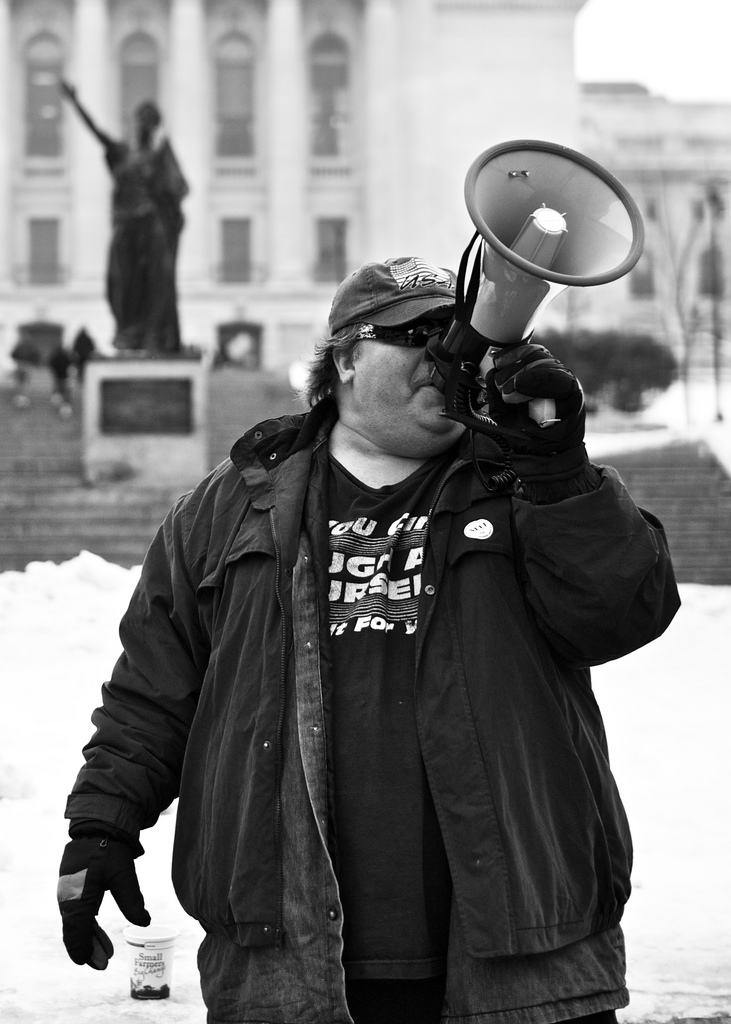It’s been two weeks since the 2014 general election. During the ensuing fortnight, many pundits and politicians have offered up their interpretations for what the voters were saying this year. Their divinations are entertaining but worthless.
Will politicians hear the message sent by voters this year? Nope. Because there is no “message” for them to hear.
No one knows what the voters were saying because it’s impossible for voters to “send a message” through an election. Here are five reasons why.
1. Voting is the bluntest form of communication ever invented
Voting is important. It’s how the public decides who’s in and who’s out of office. But as a form of communication, it’s the worst. When you vote, you simply choose a candidate. You can’t explain why you are making this choice. You can’t express how much you like your choice. Even if you could express these things, you’re doing so anonymously so the candidate doesn’t even know how you voted. To make matters worse, your vote is mixed together with thousands of other anonymous votes, each of which could be cast for a different reason.
2. Time and money talks
If voting is the bluntest form of communication, donating time and money is the most effective. By writing a check, a donor is able to tell the candidate exactly how much he values the candidate’s efforts. By volunteering, a supporter can express how much she wants the candidate to win. This is much better than merely voting. Moreover, a supporter often has access to the candidate both during the campaign and (more importantly) after the victory. As a result, a donor or volunteer is able to communicate directly to the candidate in a way that a voter cannot.
3. The outcome was predictable (without even knowing who was running)
Elections aren’t like the stock market. They’re more like the weather. We can (and do) know how to predict them. Even without taking into account who was running or any polls, political scientists predicted the number of seats Republicans would take in the House and the Senate. Elections are so predictable that it’s really, really hard to show that they actually matter to the outcome of an election. In years when a party is unlikely to do well, quality candidates don’t throw their hats into the ring, donors don’t give as much, and voters stay home. Campaigns just don’t matter nearly as much as people think.
4. “Waves”, “tsunamis”, and other analogies are bunk
Talking heads need analogies, but they’re rarely based on what’s actually going on. In the U.S., there are rarely national elections. Each race is unique. While there may effects from national events, the effects of these events only matter to a handful of races. Even in so-called wave elections like 2010, there is little evidence of waves occurring.
5. Candidates are elected, not policies or parties
In the U.S., we don’t cast votes for parties with platforms. We vote for individuals who happen to have a D or R listed next to their names. Candidates are elected, and each candidate is unique. To give just one example, in Illinois this year there were a number of statewide contests. In some races, Democrats received nearly two-thirds of the vote. In others, they received just 45 percent. This is a blue state (in fact, Obama’s state) but the outcomes varied greatly from one race to another. The reason was that each race featured unique candidates. Some had strong financial support. Others had name recognition. A few were incumbents, and their records affected their showings (for good and ill). But looking at the results, you quickly realize that it was not about party alone. And because of this fact, it’s much harder to figure out why voters cast their votes — were they sending a message or did they just like the candidate?






